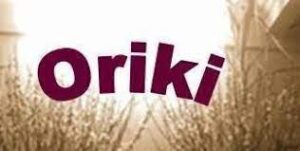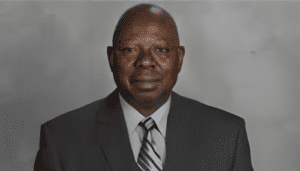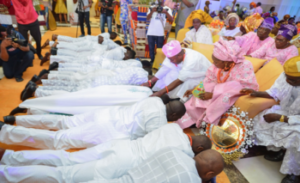


KGG Hub and Nedogas Plant: NCDMB and its strategic partnerships
On June 6, 2024, the Minister of State for Petroleum Resources (Gas), Rt. Hon. Ekperikpe Ekpo, commissioned two multibillion-naira assets of strategic importance to the nation namely; the 300 million standard cubic feet per day (MMscfd) Kwale Gas Gathering (KGG) Hub and Nedogas Modular Gas Plant.
It signalled the full commencement of operations at the 300 million standard cubic feet per day (MMscfd) Kwale Gas Gathering (KGG) Hub and Nedogas Modular Gas Plant by the project promoter, Nedogas Development Company Limited, a joint venture company between Nigerian Content Development and Monitoring Board (NCDMB) and Xenergi Limited, an indigenous company.
It was the latest in a string of successes recorded by the NCDMB in strategic partnerships, most notable among which are Waltersmith Petroman Oil Company Ltd, owner and operator of the 5,000-barrel per day Waltersmith Modular Refinery, Ohaji-Egbema Local Government Area, Imo State, and Duport Midstream Company Ltd, owner and operator of Duport Energy Park, Egbokor, Edo State.
To the Minister and chief executive officers (CEOs) of the federal agencies at the June 6 event, it was an occasion for celebration as the facilities came on stream, a remarkable milestone in the actualisation of Federal Government’s Decade of Gas Programme, launched in 2020, and the Nigeria Gas Flare Commercialisation Programme, initiated earlier in 2015. In that commissioning ceremony also was sufficient evidence of NCDMB’s dedication to creating in-country value through strategic partnership with indigenous oil and gas companies.
The Minister, Rt. Hon. Ekpo said the event represented “a significant advancement in the country’s efforts to promote sustainability, energy efficiency and economic expansion.”
Also, it marked “a major turning point in Nigeria’s continuous quest to use its abundant natural gas resources for the country’s development.” Evidently gratified, he declared, “It gives us [Federal Executive Council] immense pride.”
By the reckoning of the Federal Government the facilities would solve “a persistent environmental issue” through the process of capturing associated gas that would otherwise be vented. The process, he noted, “turns a potentially waste product into a useful resource.”
In a summation of what the KGG Hub and Nedogas Plant mean for the country, the Minister declared, “A greater supply of gas will boost the electricity supply to industry, improve industrial productivity, and offer more environmentally friendly home energy options. Thus, our people’s quality of life will improve, sustainable development will be promoted, and Nigeria will be positioned as a major player in the world energy market.”
He would not leave out the agents of what he described as “these outstanding initiatives,” to whom he paid glowing tribute.
According to Rt. Hon. Ekpo, “The NCDMB and Nedogas Limited, of which Xenergy Limited is a part, deserve praise for their tireless work and steadfast dedication to this admirable cause.” Their collaboration, he emphasised, “serves as evidence of the effectiveness of our local content policy, which seeks to increase the involvement of Nigerian businesses in the oil and gas industry while promoting local knowledge and capability.”
Creative engineering and forward-thinking planning on their part, as well as joint public-private sector efforts, he said, had made the monumental accomplishment possible.
The Executive Secretary, Engr. Felix Omatsola Ogbe, spoke as industry regulator and chief implementor of Nigerian Content as enshrined in the Nigerian Oil and Gas Industry Content Development (NOGICD) Act, 2010. He was categorical about the vision and mission of his agency and the mode of its interventions to advance the objective of local capacity building and utilisation of in-country resources.
He said, “We are proud of our strategic projects we are developing in partnership with other [Nigerian] investors in the last 10 years, especially in the gas sector. These projects are geared towards actualising the Federal Government’s policy direction. We would like to emphasise that NCDMB is a business enabler, not just a regulator of local content.”
According to Engr. Ogbe, “Our mandate under the NOGICD Act is to promote development and utilisation of local capacities in the Nigerian oil and gas industry,” and that the facilities would also “serve as catalysts for local content development, job creation,” and a lot else.
Pursuant to that mandate, the Board had ensured utilisation of local capacities on an unprecedented scale in the construction of the Nigeria Liquefied Natural Gas (NLNG) Train 7 project, resulting in 50 percent domiciliation of the US$12 billion expenditure. And only recently, NCDMB teamed up with SEPLAT Petroleum Development Company Ltd to build a world-class gas development research facility at Delta State University, Abraka, to develop local capacity.
As he rounded off his address, Engr. Ogbe declared, “We are not just celebrating; we are reaffirming our commitment to the principle of Nigerian Content development. According to him, “NCDMB will continue to support initiatives that promote local content, drive economic growth and improve the quality of life of all Nigerians.”



